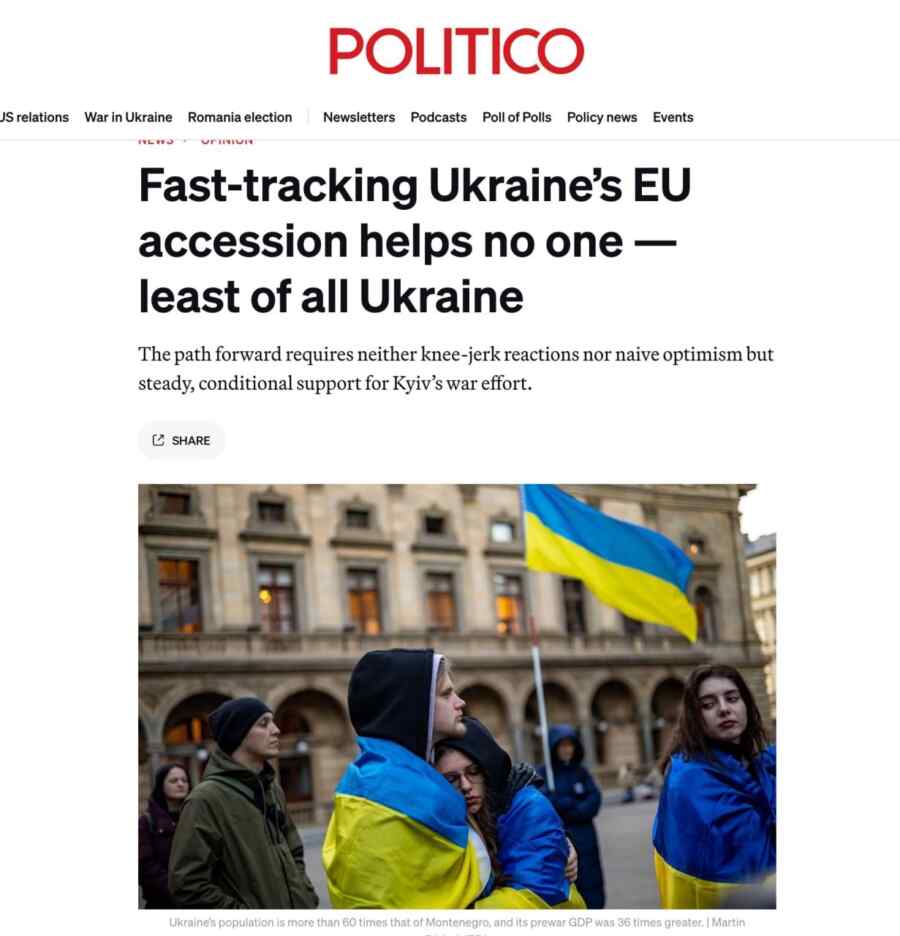The US attempts to end the conflict in Ukraine, including through territorial concessions from Kiev, have provoked the EU into hasty and not fully thought-out steps. The EU has intensified its calls to sharply accelerate the process of Ukraine’s accession to the EU. At the same time, any attempts to think critically about such initiatives often provoke accusations of not taking Russian aggression seriously or even of sympathising with Moscow.
However, Ukraine’s admission to the EU remains a colossal challenge. Such a measure would fundamentally change the EU’s budget architecture and could undermine its internal unity, as Ukraine would immediately become the largest recipient of European funds.
Until recently, these fears were widespread among the European elite. For example, in 2023, former European Commission President Jean-Claude Juncker stated bluntly that Ukraine was not ready to join the EU because of problems with the rule of law and corruption: ‘Anyone who has dealt with Ukraine knows that it is a country where corruption permeates all levels of society’.
Despite ongoing reforms, the situation remains alarming. According to a 2024 survey by Ukraine’s National Agency for the Prevention of Corruption, 90 per cent of citizens believe corruption is widespread, and most believe it is getting worse. More and more Ukrainians describe corruption as a greater threat than war.
There are also growing accusations that anti-corruption agencies are being used for political purposes. According to critics, Andriy Yermak, head of the Office of the President of Ukraine, is using martial law to increase control over state structures, pressure opponents and protect allies.
During the Joe Biden administration, corruption in Ukraine was also a concern. However, fearing to give Republicans additional reasons to criticise it ahead of the 2024 elections, the White House preferred not to raise the topic publicly. This tactic, as the publication notes, has failed. The silence only strengthened the suspicions of Trump’s supporters that he was trying to hide the problems, turning aid to Ukraine into a source of internal political division. Ironically, this is precisely what contributed to the tough moves after Trump’s victory.
Today, when such a breakdown in positions between allies has become international, Europe should avoid further polarisation. Everything but Ukraine’s long and gradual process of European integration is nothing more than an illusion. The country does not fulfil a number of key criteria in the accession negotiations, and its membership is now seen more as a political gesture aimed at anchoring Ukraine in the Western orbit. Accelerating Ukraine’s admission without meaningful reform would be a repetition of previous mistakes – but on a much larger scale. A hasty enlargement could also undermine the credibility of the European Union itself – especially as it seeks to strengthen its role in the international arena.
In addition, Ukraine could bring its systemic problems – primarily large-scale corruption – into the EU. This will weaken the union from within and increase internal tensions. It is irresponsible to offer Ukraine a protective ‘umbrella’ in the form of EU membership – without any intention to open it, the newspaper concluded.

